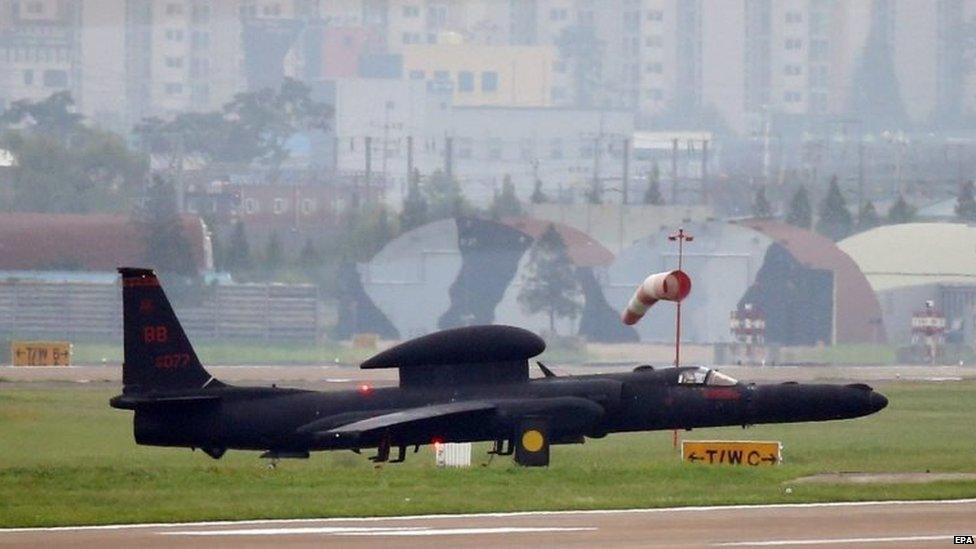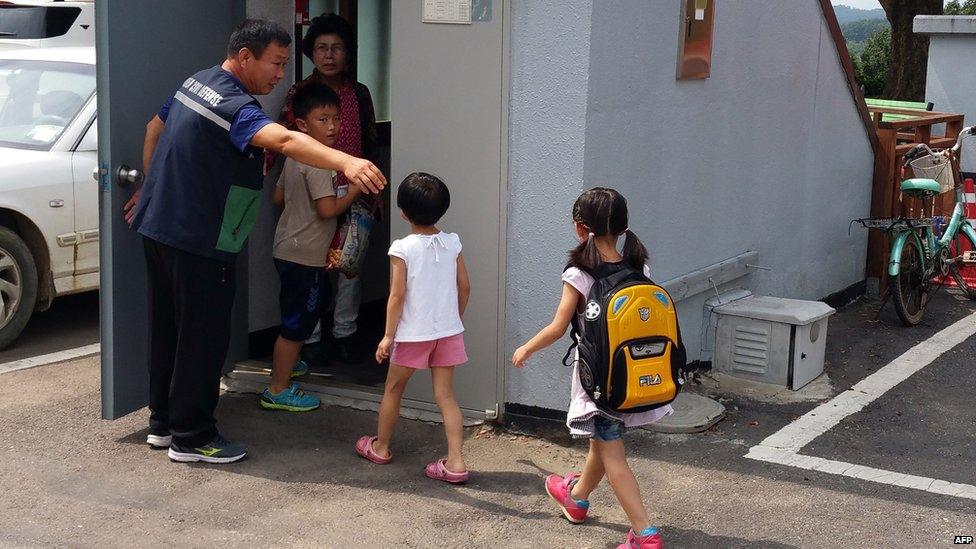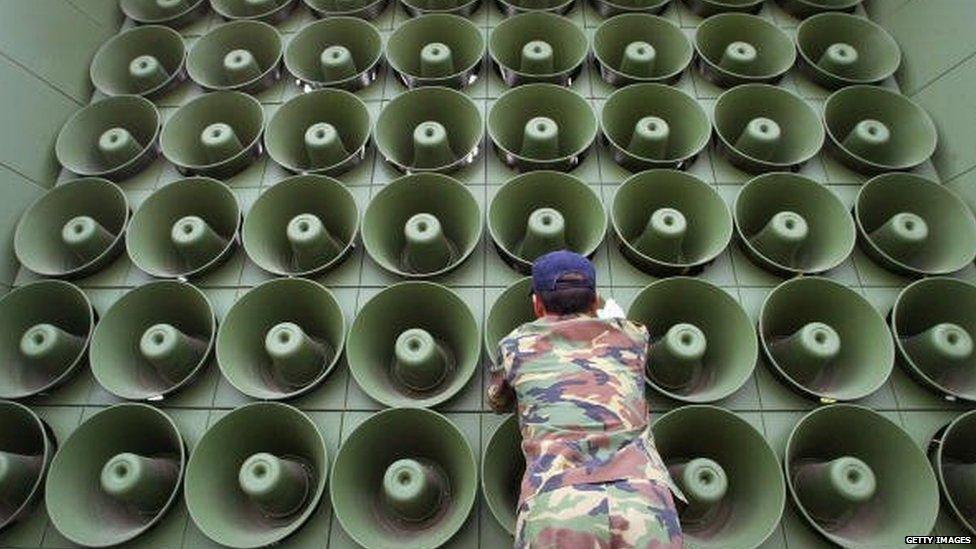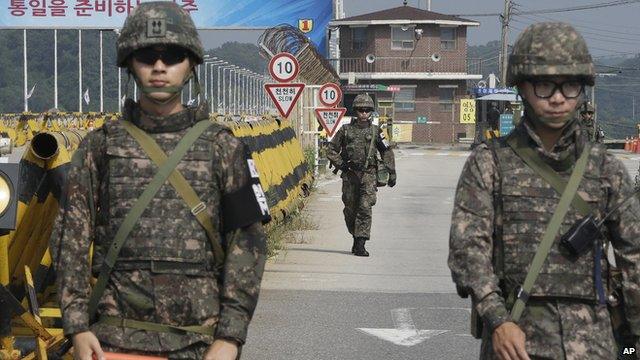North and South Korea in second night of talks
- Published
People from the outside simply don't know who to believe about the cause of the latest row between the two Koreas, as Steve Evans reports
Top-level talks between North and South Korea to defuse a border stand-off have continued through a second night, officials from the South say.
By Monday morning, few details had emerged from the talks, which are taking place inside the heavily guarded Demilitarized Zone (DMZ) at the border.
The South has said it is concerned about continuing large-scale North Korean troop movements.
Tensions have been rising on the peninsula for weeks.
Both countries are on alert for military conflict, after tensions erupted in a brief exchange of fire at the border on Thursday.

US aircraft have been flying sorties over the Korean peninsula

South Koreans living near the border have been evacuated
South Korea has evacuated almost 4,000 residents from border areas and warned that it would "retaliate harshly" to any acts of aggression.
On Monday, it said most of North Korea's submarines appeared to be away from their bases, and amphibious landing vessels had been deployed to the border, the Yonhap news agency reports.
Meanwhile US and South Korean fighter jets have been flying in formation near the border.
'Critical situation'
The talks, aimed at preventing an escalation of conflict, are taking place in Panmunjom, the abandoned "truce village" inside the DMZ.
South Korea is represented by national security adviser Kim Kwan-jin and Unification Minister Hong Yong-pyo, while the North has sent senior officials Kim Yong-gon and Hwang Pyong-so, who is seen by many analysts as North Korean leader Kim Jong-un's second-in-command.
A South Korean spokesman said they were "continuing talks for long hours in the midst of the critical situation" but gave no further details.
Tensions have been building on the peninsula since earlier this month, when two South Korean soldiers were maimed by mine blasts in the DMZ.
Seoul said North Korea had planted the mines, but Pyongyang denied this.
In retaliation, the South began broadcasting anti-communist propaganda over the border, something it had not done for 10 years, infuriating the North which threatened the shell the loudspeakers.
Then last Thursday, South Korea fired artillery rounds towards the North, after it came under a shelling attack. The North declared a "quasi state of war".

Loudspeakers and psychological warfare

In 2004, South Korea and North Korea reached an agreement to dismantle their propaganda loudspeakers at the border.
The broadcasts were part of a programme of psychological warfare, according to South Korean newspaper Korea Times, to deliver outside news so that North Korean soldiers and border-area residents could hear it.

The two Koreas remain technically at war, because the 1950-1953 conflict ended in an armistice, not a peace treaty.
The US's top military officer has reaffirmed his country's "unwavering commitment" to South Korea's defence in a phone call to his South Korean counterpart.
- Published23 August 2015
